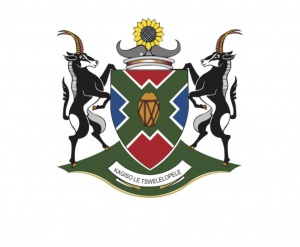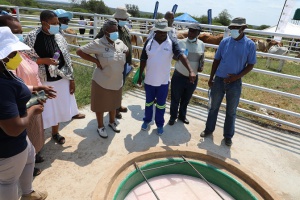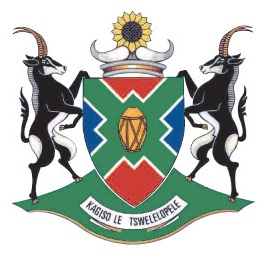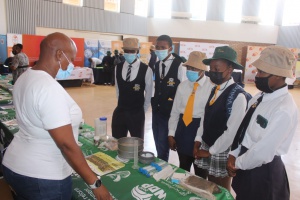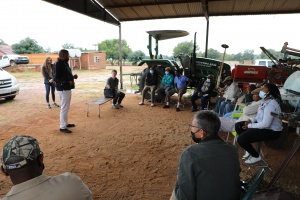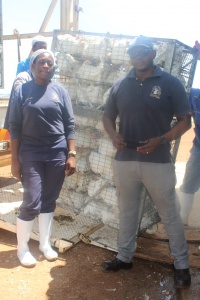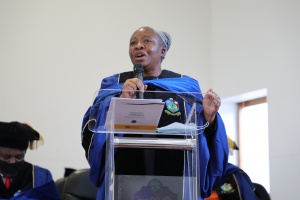The North West Province Department of Agriculture, in partnership with the United States of America’s University of Michigan (UM), are working on a project to integrate renewable energy practices into the operations of Kgora Farmer Training Centre. Kgora is a state-owned training centre based in Mahikeng where farmers from across the country are trained on agricultural theory and provided with hands-on experiences. This partnership will see the University of Michigan through its Sustainability Without Borders (SWB) program, which is housed within the School of Environment and Sustainability (SEAS) and the College of Engineering, establishing a demonstration and research centre for renewable energy at Kgora to empower emerging farmers (particularly black female farmers) in the province, and potentially across the country, in the use of renewable energy for productive uses related to agriculture and agribusiness. A hybrid gasification-solar PV powered micro grid will be established at Kgora Farmer Training Centre for mutual research on the varied uses of renewable energy on farms and it will also be used for demonstration and vocational training. Amongst other things, the University of Michigan will also develop training curricula, support the building and installation of renewable energy prototypes and, ideally, working with students and faculty from the North West University and other agricultural colleges in the province, deliver the curriculum to our local farmers.
Farmers who will mostly benefit are those in horticulture, dairy, poultry and livestock, grains, and agro-processing where power is such an important and expensive input cost. Once the demonstration and research centre for renewable energy is launched, the Kgora Farmer Training Centre will identify not less than forty (40) trainee farmers as a start to benefit from the project. Unemployed agricultural college graduates will also be trained on the technologies to provide energy related extension services, and learn how to install, maintain and repair the various technologies that will be deployed on the farm. The identified farmers will learn skills to generate enough green electricity to cover their own use and perhaps sell surplus. They will also be encouraged to develop energy cooperatives where they can cluster technologies and share the expenses of establishing the renewable energy systems. The University of Michigan, through a collaborative effort with Kgora’s management will source funding for this project. University of Michigan alumnus, Michael Sudarkasa, a long-time resident of South Africa and former project director of the South Africa Solar Energy Technology Road mapping exercise conducted by the Department of Mining and Energy and the Department of Science and Innovation in 2014-2015, will also assist in the local coordination and resource mobilization effort.
Through, his firm, Africa Business Group, a Johannesburg based, continentally active economic development firm, he will work closely with the University of Michigan and Kgora to identify funding to support the initiatives to be implemented under the program. Currently, two masters students Jack Teener and Rachel Kaup from the University of Michigan and their Prof. Jose Alfaro, who established the Sustainability without Borders program at SEAS and who visited SA in 2019 to help kick off the research supporting the project, are in the province to gather information on farmer energy demand needs, available organic waste volumes, and to interact with local farmers to learn more about their familiarity with renewable energy products and technologies to ensure that this massive project becomes a success. They all are excited to be part of this project. “This is very exciting for us because once the project is completed and farmers have been trained, it will allow them to have a consistent source of electricity and allow them to carry on with their day-to-day farming activities with fewer interruptions and at lower expenses than they currently have with load-shedding and rising electricity prices in the country,” Jack expressed. Explaining the advantages of biomass gasification, Rachel said the biomass gasification process reduces the environmental impact of waste disposal because it allows for the use of organic waste products as a feedstock.
MEC Desbo Mohono is optimistic that the project will help solve the current electricity challenges faced by local farming communities. She has committed to allocate the needed resources and to provide support to ensure that the project will be successful and that farmers benefit. “It is a fact that like seeds and fertilizers, electricity is a critically important input to successful farming. So, I am glad that we have started the work already with our partners from the University of Michigan. Beside the fact that we will not be polluting the environment with this technology, I am glad that the people whom I serve, are the farmers, will benefit the most once this project is up and running. “It will not only save them money, but it will help them to become more competitive in South Africa’s very competitive food market,” MEC Mohono said. This partnership is in line with the mandate and purpose of Kgora Farmer Training Centre, which is derived from the skills development Act 1998 (Act No. 97 of 1998).
CAPTIONS: Pic 5H3A2582: Kgora Farmer Training Centre Manaer, Mr ThuthukaniHlanguar Ramatlabama village near Mahikeng, explaining the concept of renewal energy to farmers
Pic 5H3A2585: Mt Jack Teneer and Ms Rachel Kaup, the two Masters students from the University of Michigan engaging farmers on their energy demand, available organic waste volumes
Issued by:
Communication Services Directorate
Enquiries: MsEmeldaSetlhako
Tel: 018 389 5684/ Cell: 060 745 4020
Tel: +27 (18) 389 5719/5684
Fax: +27(18) 384 4571
E-mail: Esetlhako@nwpg.gov.za
DIRECTORATE: COMMUNICATION SERVICES
AgriCentre Building
Cnr. Dr. James Morokaand
Stadium Rd
Private Bag X2039, Mmabatho 2735
